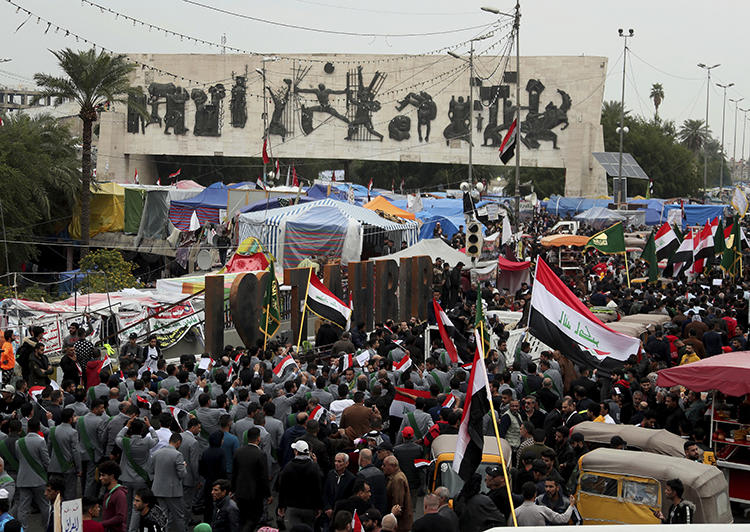Beirut, December 9, 2019 — Iraqi authorities should conduct a thorough and transparent investigation into the abduction of journalist Zaid Mohammed al-Khafaji, secure his release, and hold the perpetrators to account, the Committee to Protect Journalists said today.
On December 6, unidentified individuals abducted al-Khafaji, a freelance photographer, from his home in Baghdad and took him to an unknown location, according to news reports. Al-Khafaji was abducted when he returned home after covering protests in Baghdad’s Tahrir Square, according to those reports.
Protests have taken place throughout Iraq since October over a lack of basic services, unemployment, and government corruption, and have seen hundreds killed, according to news reports.
“Covering the ongoing protests in Iraq is becoming a highly risky affair that is costing local journalists dearly,” said CPJ Middle East and North Africa Representative Ignacio Miguel Delgado. “Iraqi authorities must step up their efforts to protect journalists; they should get started by investigating the abduction of Zaid Mohammed al-Khafaji.”
CCTV footage posted to the news website Irfaa Sawtak shows al-Khafaji arriving home by taxi, and two men can be seen exiting a nearby car, dragging al-Khafaji to their car, and driving away.
Al-Khafaji’s brother, Ali, told CPJ via messaging app today that he had not heard from al-Khafaji or his captors since the abduction.
At least two other journalists, Mohammad Qahtan al-Shamari and Shojaa Fares al-Khafaji, have been abducted since the protests broke out in Baghdad, according to CPJ reporting. Both were later released, according to CPJ reporting and news reports.
Also on December 6, an unidentified individual shot Ahmed Muhana al-Lami, a photographer, in the back while he was covering protests in Baghdad’s Al-Khilani Square, according to a hospital document that has been shared on social media and an interview with the paramedic who treated al-Lami’s wounds, which was posted to social media. Al-Lami was transferred to Sheikh Zayed Hospital in Baghdad, where he died of his wounds shortly afterwards, according to a statement by his employer.
Al-Lami worked as a photographer and camera operator for the Media Directorate of the Popular Mobilization Units, a state-sponsored group consisting of 40 mostly Shia militias, according to the statement from his employer. He covered the Iraqi government’s military campaign to retake control of territory held by the militant group Islamic State between 2015 and 2017, and had been covering the protests in Baghdad since they broke out in October, according to that statement and his posts on social media.
Initial news reports and the statement from al-Lami’s employer claimed that the journalist was stabbed, but the paramedic said al-Lami had a gunshot wound near his spine, and said there was no evidence of stab wounds.
At least 14 people were killed in Baghdad on December 6 when unidentified gunmen in cars fired on protesters, according to news reports.
